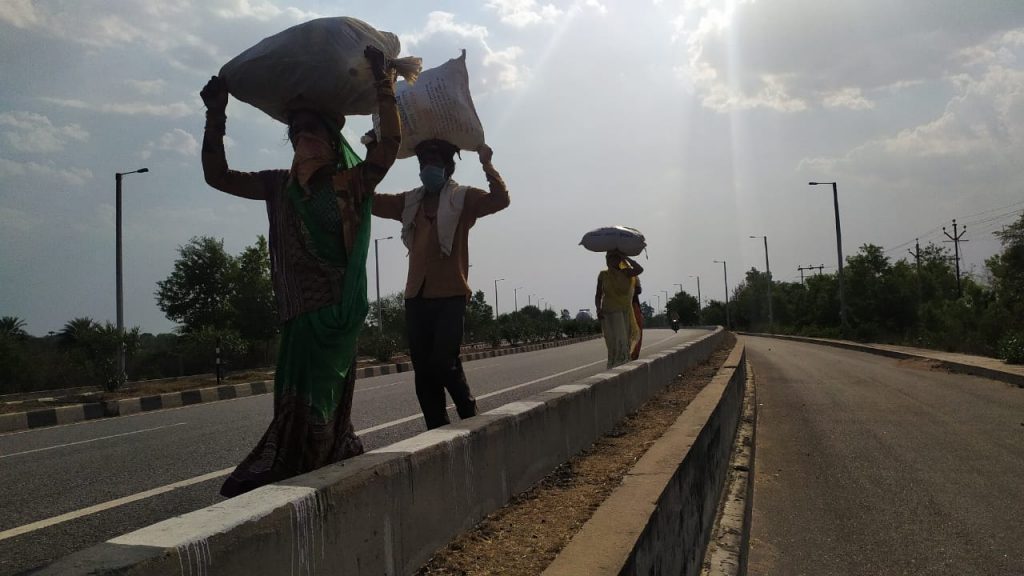“It is tiring. We have been walking for the past four days from Indore. I am with my three children and husband,” shares Pushpa, who is covering more than 400 kms from Indore in Madhya Pradesh to her native village Lalitpur in Uttar Pradesh, on foot. This is the plight of hundreds of thousands of migrants currently trying to get home to their villages in India. The coronavirus pandemic has had a devasting effect on the daily wage labourers and migrant workers of the country. With no work since the past two months, complete lockdown, no transport and an uncertain future, they started out on an arduous journey back home.
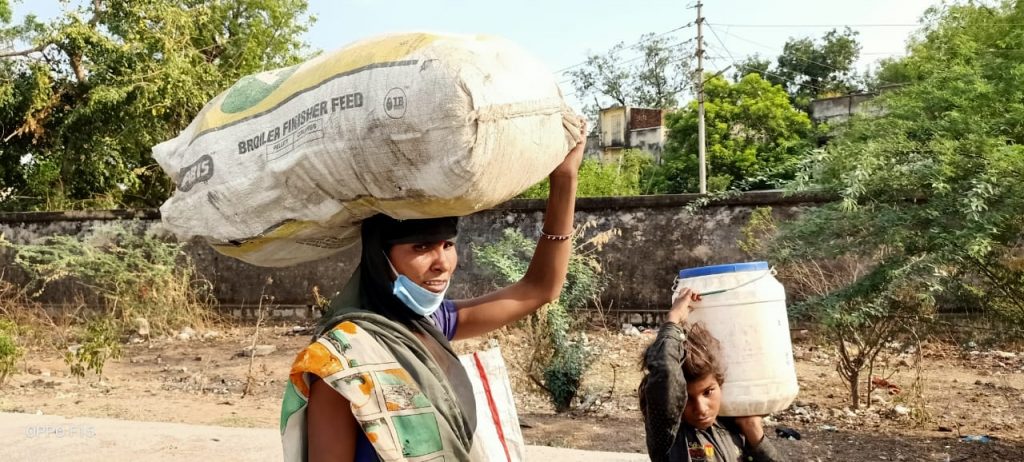
India announced its first lockdown on 24th March 2020, sending waves of uncertainty throughout the nation. While the migrant workers became restless, the government announced public schemes, pensions and food provisions. However, a lot of valuable time was already lost. Although the lockdown aimed at preventing community transmission of the coronavirus, it had a serious economic impact on the livelihoods of these migrants. Despite this, even after 50 days of the lockdown, thousands of migrants are still trying to make their way back covering hundreds of kilometers.
Ensuring a safe and dignified journey back home
Despite the desperation which can be seen everywhere, this country indeed boasts of good Samaritans who have gone beyond their call of duty and ensured a safe and dignified return of the migrant population.
Many of Welthungerhilfe’s partners across project locations are working round-the-clock to support these migrants since the first lockdown was announced. Whether it is in Madhya Pradesh in central India, Uttar Pradesh and Rajasthan in northern India, Chhattisgarh in central – east, or Jharkhand and Bihar in eastern India, our partners such as Mahatma Gandhi Seva Ashram (MGSA), Parmarth Samaj Sevi Sansthan, Prayog, Center for World Solidarity (CWS), Pravah and Abhivyakti Foundation have gone out of their way to help the migrant crisis of India during the coronavirus pandemic. Prayog along with Ekta Parishad prepared a list of 52,565 migrant workers stranded across the nation using google forms and advocated with local administration to provide them food and shelter.
According to World Bank, the lockdown impacted nearly 40 million internal migrants. Besides migrating to work as daily wagers in construction sites, restaurants, domestic workers etc., many individuals also work as agricultural labourers who seasonally migrate to nearby towns and cities in search of work. Such seasonal migration can mostly be seen during the months of February and March every year during harvesting time.
“We don’t own any land and are dependent on daily wages for our survival throughout the year. We generally migrate to nearby areas in February during the harvesting season, work on fields and earn sufficiently to arrange necessary food grains for the next 3-4months. However, this year, we could barely work since the lockdown was announced. Whatever little we earned in the initial days is almost over now,” shares Veer Singh, the community leader of the migrant group stranded in Gwalior, Madhya Pradesh. This group comprising 20 women, 17 men and 35 children had to spend numerous nights on a vacant field sleeping on plastic sheets. Lack of adequate food took a serious toll of their health, particularly the young children.
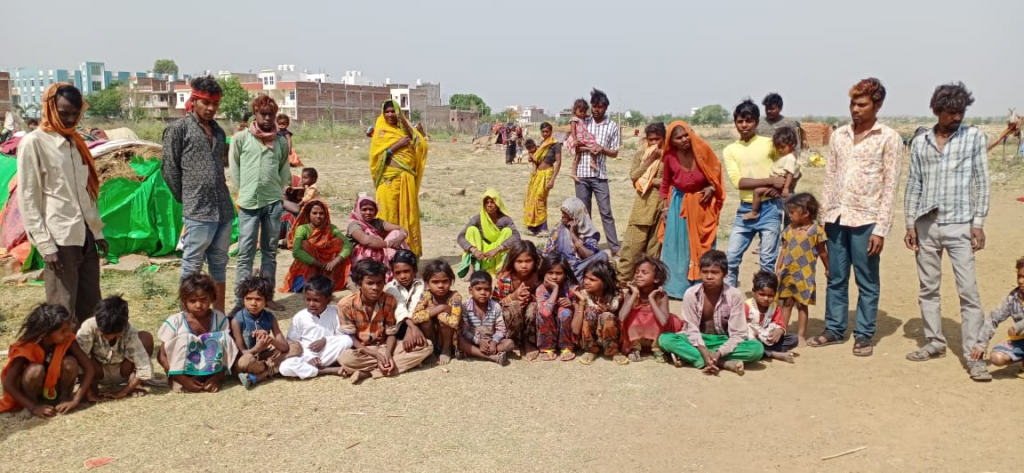
For Budhu Bai, life until a few days back was no different. She along with her four children, husband and 18 other migrant labourers accompanied by 17 children were staying under a mulberry tree in a farm where they were working as agricultural labourers since the first lockdown began. With no regular income and work, they were dependent on their employee for food. They were fortunate enough to get support from MGSA who gave them some dry ration, masks and soaps. However, other issues such as lack of sufficient water, toilets and an uncertain future prevailed. After spending 28 days under the tree and at the mercy of others in Morena district, Madhya Pradesh, Budhu Bai and her family could go back to their native village in Shivpuri distrct with buses arranged by the local government. MGSA-Ekta Parishad supported Budhu Bai with thousands like her across 39 districts in 10 states.
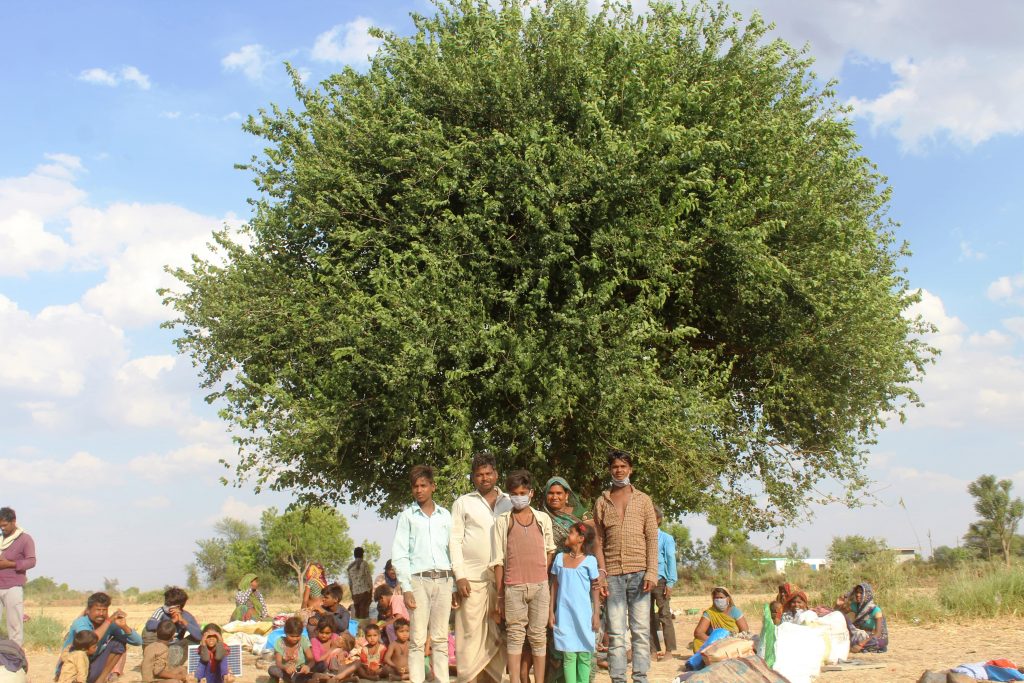
Supported by many other donors, Welthungerhilfe’s partner organisations have set up community kitchens, prepared and distributed food packets, and distributed face masks and hygiene kits to the traveling migrants on road across its locations. They are also efficiently coordinating with the respective district administrations and state governments to identify the stranded migrants in other states and adequate arrangements for interstate bus services are being made. For the stranded migrants MGSA and Parmarth are distributing dry rations and providing all support possible.
Second wave of lockdown and beyond
Phase two and three of the lockdown were announced on 15th April and 4th May, 2020. This, accompanied with the incoming summer, rising temperature, decreasing water supply and livelihood and food crisis, accelerated the anxiety of the migrants. Reverse migration was surely witnessed as a visible fallout of COVID-19. Very recently, in some places the governments did start special buses and train services for the migrants.
“I was fortunate enough to get a bus. But we were dropped off midway. I now have to cover the remaining distance on foot with my family,” says Pritam a migrant daily wage labourer crossing Jhansi, Uttar Pradesh. “I went to look for work but because of the lockdown I could not find any. I couldn’t earn anything in the last two months. I don’t know if I will go back to Indore after the lockdown opens. But I must survive and look after my family,” shares Pritam as he continues his journey carrying his child on his shoulder.
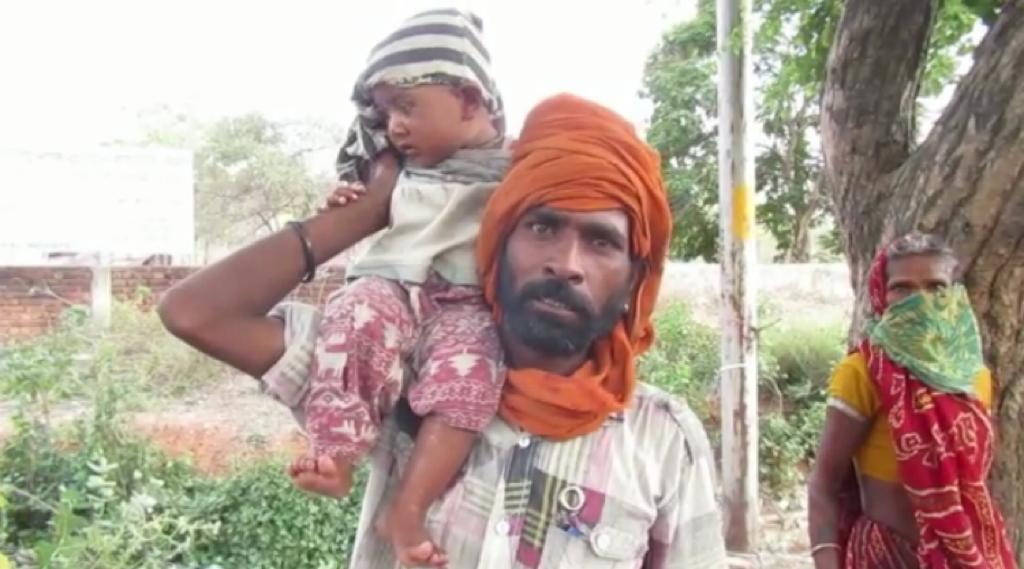
However, not everyone is able to board the government run buses and trains. “Our employer helped us in coming back. We worked in a restaurant in Vishakhapatnam and earned Rs.300 per day. When the lockdown was announced we stayed back at the restaurant for some days. But with no regular earning, we had to come back. We traveled in two separate trucks as a handyman and traveled for three days before we could reach our district in Jharkhand,” shares 20-year old Mahitosh Mahato who traveled back with his friend Kush Mahato from Andhra Pradesh covering 786 kms. Upon their return on 10th May, with the help of the village head of their village Kalichitti, both Kush and Mahitosh has been put under isolation in a quarantine facility developed by the locals. Welthungerhilfe partner, Centre for World Solidarity (CWS) helped them with masks and hygiene kits. Their samples have been sent for testing and everyone prays that it turns out to be negative.
Sanjay Singh, Secretary, Parmarth Samaj Sevi Sansthan shares, “Despite buses and trains being started by the government now, there are still thousands of stranded migrants. Jhansi in Bundelhand, which is an important gateway and intersections for Uttar Pradesh and Bihar, is witnessing nearly 20,000 migrants crossing the city daily. They are mostly coming from Mumbai, Surat, Ahmedabad, Chennai, Hyderabad, Bangalore, and Pune, walking for thousands of kms with bare minimum food supplies. This is the largest reverse migration our country has ever seen. This pandemic has compelled us to see the need to have a database of the migrant population in the country”. Parmarth till date has reached out to nearly 65,000 people across 10 districts in UP and MP.
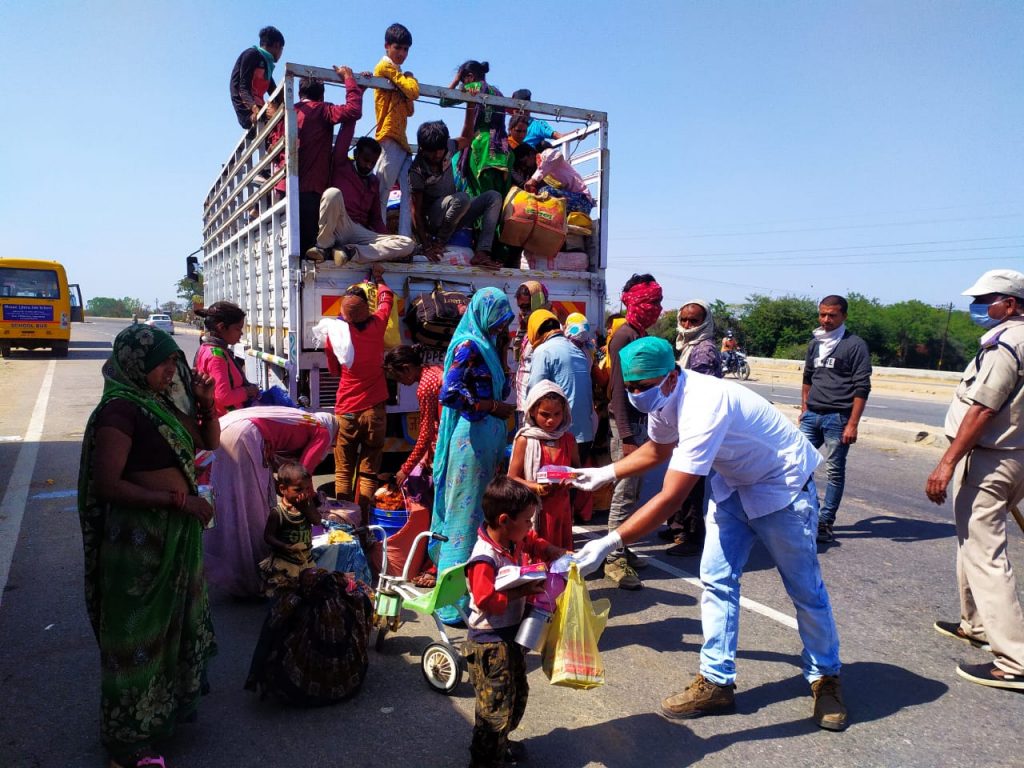
Looming insecurities post exodus
The arduous journey of the migrants does not end once they reach their village. After days of traveling, they must be quarantined or put under home isolation as a precautionary measure. Most of the times they also face the resentment from the locals once they reach their village and some have even been in hiding for fear of locals lashing out. In most rural areas, coronavirus is considered as an urban curse, now being carried to rural India by the migrants.
“While the feeling of being home gives them a sense of bonding, life back in the village is not going to be easier. There are no jobs and agriculture, with low public investment, is in no condition to absorb all of them. Insecurity of food, livelihoods, health and the future, stares them in the face. Civil society and the governments need to work extremely hard, and very closely, to pull them out of distress”, adds Nivedita Varshneya, Country Director, Welthungerhilfe, India.
With inputs from Mehtaab (Parmarth), Jonu (MGSA) and Shaban (CWS).
